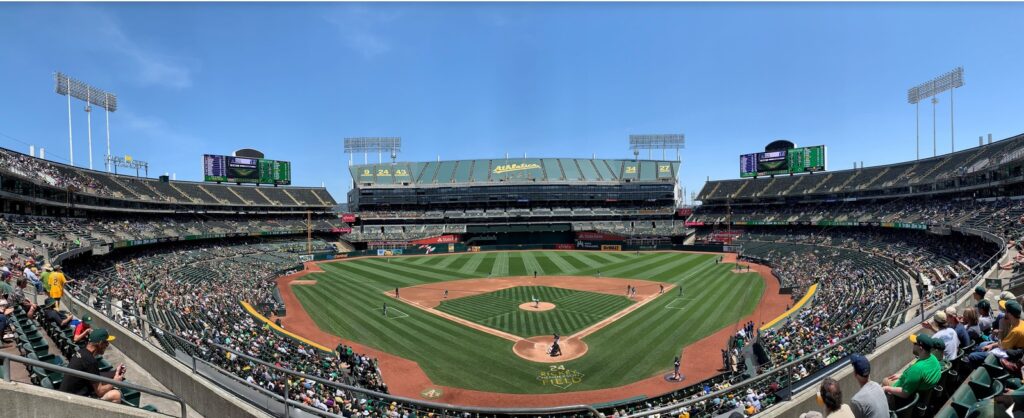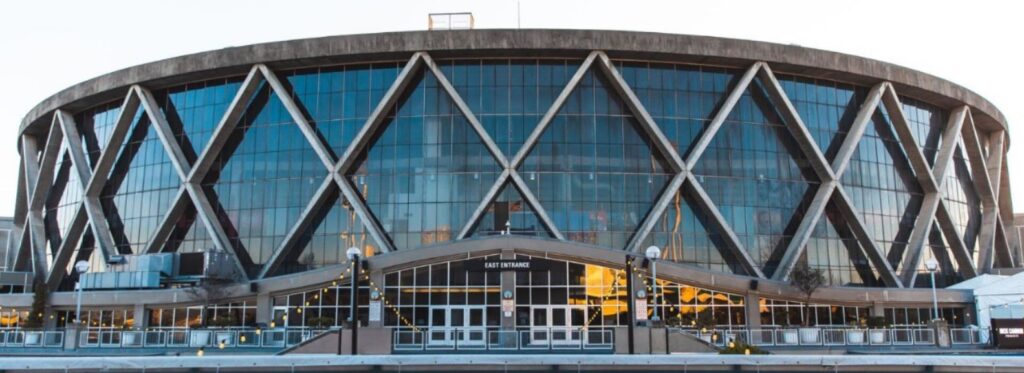OAKLAND — When Usher brings his Past, Present, Future tour to the Oakland Arena Sept. 28-29, he will be performing in the most important Black commercial real estate deal in history, an example of the New Black Urbanism which is the dominant direction for the next century.
Over four years, Chicago-based Loop Capital, led by James Reynolds, put its backing behind a second-generation Black developer rooted in the beginning of the minority business movement and the African-American Entertainment and Sports Group to buy the Oakland Coliseum Complex, a deal that was consummated at the end of August with the sale of the ownership by the Oakland A’s and the City of Oakland for more than $200 million.

Loop, founded in 1997, has $6 trillion in funding mandates, trades $1 billion in fixed income securities daily and $750 million in equities. Its founder now serves as chairman of boards for the Chicago Community Trust and Securities Industry and Financial Markets Association (SIFMA).
On the surface, it might seem that buying two 50-year-old stadia abandoned by their major league sports teams is a questionable proposition. However, the value proposition is the 700 acres of land immediately adjacent to an airport, with a railroad and subway stop between two Interstate highways.
Ray Bobbitt and Alan Dones are principals of the AASEG. Dones is the son of Ray Dones, a founder of the Minority Contractors of America in 1968. The construction of the arenas displaced thousands of African-American residents in what is known as the “flatlands” of East Oakland.
The purchase by an African-American owned entity gives those residents the opportunity to decide what the future will be, as Usher terms it. Dones has been a principal in the Mandela Crossing transit oriented development in West Oakland, so it offers the opportunity to reverse the outmigration of African-Americans from the city in both major development corridors.
The closing came in the midst of the best week for economic development for the East Bay in decades. The U.S. Department of Energy and Gov. Gavin Newsom also announced a hydrogen hub at the Port of Oakland, which provides the opportunity to reduce pollution to the city’s economic engine and create thousands of renewable energy jobs. Nearby Richmond reached a $500 million deal with Chevron to mitigate the impact of its refinery.
In addition, NBA champion Jaylen Brown joined the opposing head coach in the NBA Finals, Jason Kidd, to launch Oakland Xchange with Oakstop committing to bring more than $100 million in investment to the city. Brown, a UC-Berkeley alumnus, not only won the NBA Finals MVP, but also has the largest contract in the league. His focus on Black economic development recalls another Boston Celtic great with Oakland ties, Bill Russell.
And, incidentally, an Oaklander is running for President of the United States. The story of the revitalization through the initiative of Black financiers and developers along with clean energy must replace the decades old narrative of crime-infested Black communities that have to be displaced without any benefits for those who came to Oakland to build railroads, save the nation with shipbuilding and then be left out from the prosperity their work created.
The example of Inglewood which has built a football and basketball arena in a predominately African-American city, suggests the kind of growth which can occur when stereotypes are discarded.
It also offers an option for another abandoned sports site, Candlestick Point, where a white developer is proposing to start long-delayed construction on a site which follows the ineffective model of promoting gentrification instead of supporting the residents of Bayview Hunters Point.
One of the happiest people to see the consummation of this deal is Wil T. Ussery, the former national chair of the Congress of Racial Equality. Ussery was a draftsman for the original construction of the Coliseum in 1960 when he became chair of the San Francisco CORE. He used his critical path methodology from architecture to organize the United San Francisco Freedom Movement and the Birmingham Childrens Crusade. His theme over the past 60 years has been the implementation of an economic freedom movement rooted in ownership and entrepreneurship.

